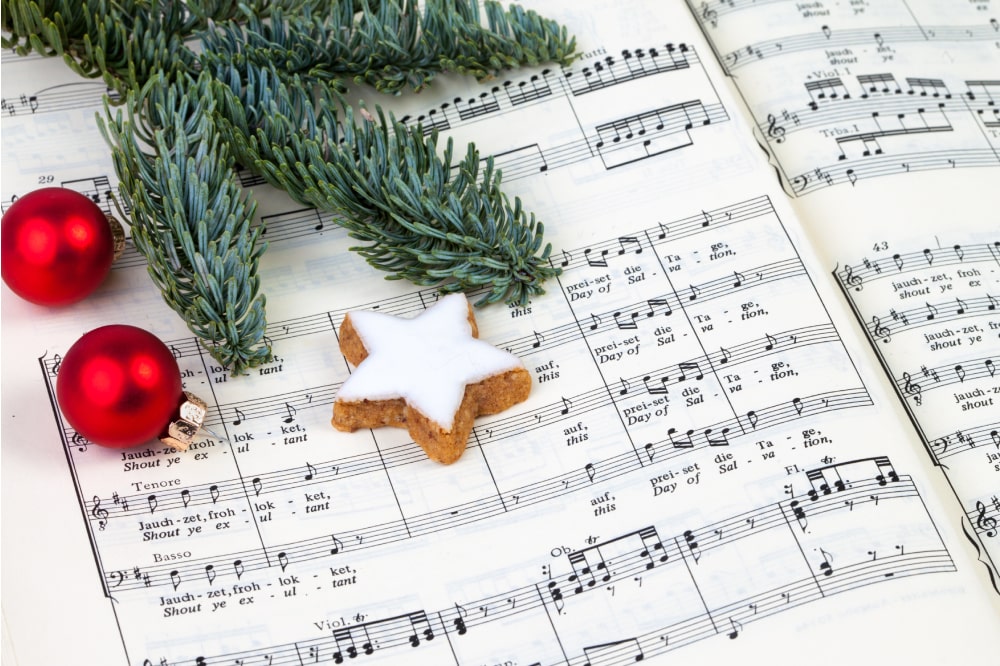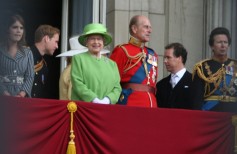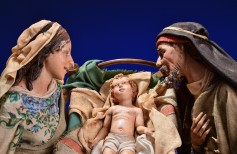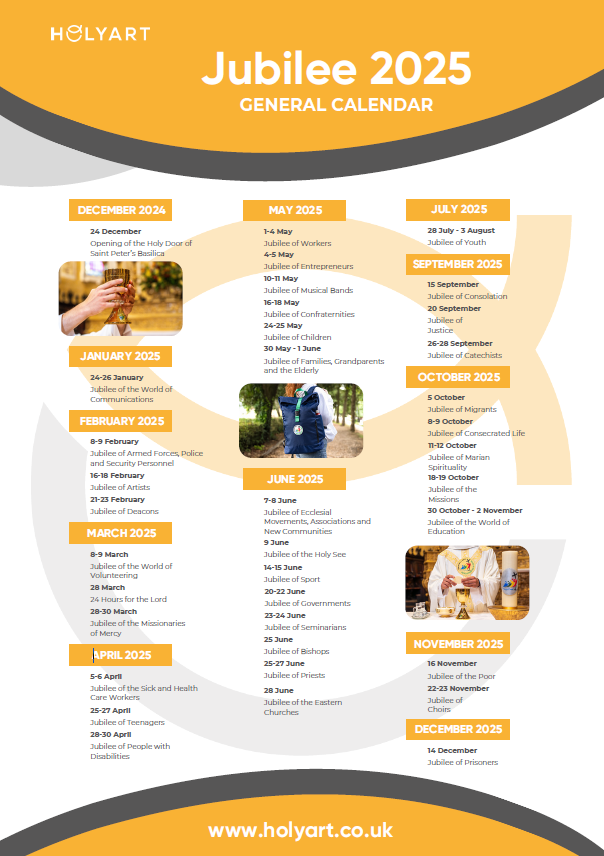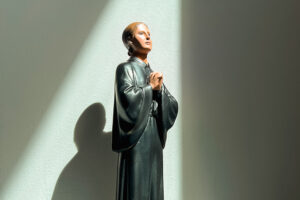From traditional English, German, and French Christmas carols to Gospel and Italian carols, Christians have sung their joy at Christmas for centuries, celebrating the arrival of Jesus. Here are some of the most famous religious Christmas carols of all time.
Contents [hide]
Religious Christmas carols are, in every sense, a form of prayer—joyous and pleasant to hear, but no less solemn and heartfelt for that. In fact, expressing one’s love for Jesus through song, celebrating the harmony of the holiday that commemorates His miraculous birth, is perhaps one of the highest forms of devotion. Christian carols are not the first or only form of music used in religious worship.
Since ancient times, music has been seen as a way to connect with the divine. Even our prehistoric ancestors used the sound of drums to accompany their wild dances as a means of communication with things they could not see or hear, only sense around them. As ancient civilizations developed, music became increasingly important for its spiritual significance. The Chinese believed it held the key to cosmic balance, the Greeks saw it as soul-healing, and Indians believed it originated from the gods.
In Christian worship, music and song have always played a fundamental role, with roots in Jewish and Greek musical traditions. Music has accompanied the most important celebrations as a true form of prayer and adoration. Gregorian chants, sung masses, and hymns—there is music for every liturgical season. Christmas, perhaps the most celebrated Christian holiday, has inspired countless memorable carols.

Here are seven of the most famous religious Christmas carols worldwide, some Italian, some foreign, though many are available in various languages, having been passed down through the centuries.
I Will Follow Him
Famous among American Christmas carols, “I Will Follow Him” was first recorded by Petula Clark in 1962 under the title Chariot and immediately became a hit, reaching major U.S. charts. In Italy, it was translated as Sul mio carro and popularized by Betty Curtis in 1963. It gained further fame through the 1992 Sister Act film soundtrack and an iconic version by André Rieu in his 2006 album, New York Memories.
Here is the beginning:
I will follow him
Follow him wherever he may go
And near him, I always will be
For nothing can keep me away
He is my destiny

White Christmas
First made famous by Bing Crosby, White Christmas, or Bianco Natale in Italian, was written by Irving Berlin and is the best-selling single of all time, with over 50 million records sold. The Italian lyrics differ from the original, but the universal spirit of peace and harmony remains the same.
I’m dreaming of a white Christmas
Just like the ones I used to know
Where the tree tops glisten
And children listen
To hear sleigh bells in the snow, oh, the snow

Astro del Ciel
Known in Italian as Astro del Ciel, the Austrian carol Stille Nacht was written by Joseph Mohr, a priest from Salzburg, and composed with Franz Xaver Gruber for the midnight mass on December 24, 1818.
Stille Nacht, heilige Nacht!
Alles schläft, einsam wacht
Nur das traute hochheilige paar
Holder Knabe im lockigen Haar
Schlaf in himmlischer Ruh!
Schlaf in himmlischer Ruh!
Tu scendi dalle stelle
This Italian Christmas carol, also known as Canzoncina a Gesù Bambino, was written by Alfonso Maria de’ Liguori, an Italian bishop, composer, and saint. Originally in Neapolitan, it was called Quanno Nascette Ninno.
Tu scendi dalle stelle, o Re del cielo,
e vieni in una grotta al freddo e al gelo. (2 v.)
O Bambino mio divino,
io ti vedo qui a tremar;
o Dio beato!
Ah, quanto ti costò l’avermi amato!
You come down from the stars, O King of Heaven,
and you come to a cave in the cold and frost. (2x)
O my divine Child,
I see You here, trembling;
O blessed God!
Oh, how much it cost You to have loved me!

O Come All Ye Faithful
The origin of Adeste Fideles, a Christmas carol of uncertain authorship, is varied and complex. Sir John Francis Wade, an English composer and musician, transcribed it around 1744, adapting several verses (1, 5, 6, and 7) from an Irish song to be sung by a Catholic choir in northern France, where Catholics fleeing Protestant persecution in England had sought refuge. Additional verses were later added in 1794 by Étienne-Jean-François Borderies, a French bishop, theologian, and writer of many hymns, with a final verse contributed by an anonymous author.
Alongside the original Latin version, the English version O Come All Ye Faithful is also well-known, itself the product of various adaptations. Initially translated by Frederick Oakeley, a Church of England minister who later converted to Catholicism, further verses were added over time. Here is a comparison of the opening lines in both English and Italian:
O come, all ye faithful,
Joyful and triumphant,
O come ye,
O come ye to Bethlehem;
Come and behold Him
Born the King of angels;
O come, let us adore Him,
O come, let us adore Him,
O come, let us adore Him,
Christ, the Lord.
Accostatevi, fedeli,
gioiosi e trionfanti,
venite, venite
a Betlemme.
Ammirate, è nato
il Re degli angeli.
Venite adoriamo,
venite adoriamo,
venite adoriamo
il Signore.
God Rest Ye Merry, Gentlemen
Originating in England, God Rest Ye Merry, Gentlemen is a traditional 15th–16th century Christmas carol that became famous in the 1800s and was even mentioned in Charles Dickens’ A Christmas Carol. Among the more recent and famous renditions is that by Pentatonix (PTX), an a cappella vocal group and three-time Grammy Award winner. There is no Italian version of this carol.
God Rest Ye Merry, Gentlemen,
Let nothing you dismay;
Remember Christ, our Saviour,
Was born on Christmas day,
To save us all from Satan’s power
When we were gone astray.
O tidings of comfort and joy,
Comfort and joy,
O tidings of comfort and joy.
Joy to the World
The song Joy to the World also has no Italian version. Composed in 1719 by Isaac Watts, a theologian and hymn writer, it is an adaptation of Psalms 97 and 98, celebrating the joy of the Messiah’s arrival. The melody is based on Handel’s Messiah, later rearranged.
Joy to the world! The Lord is come.
Let earth receive her King
Let every heart
Prepare Him room
And Saints and angels sing
And Saints and angels sing
And Saints and Saints and angels sing

